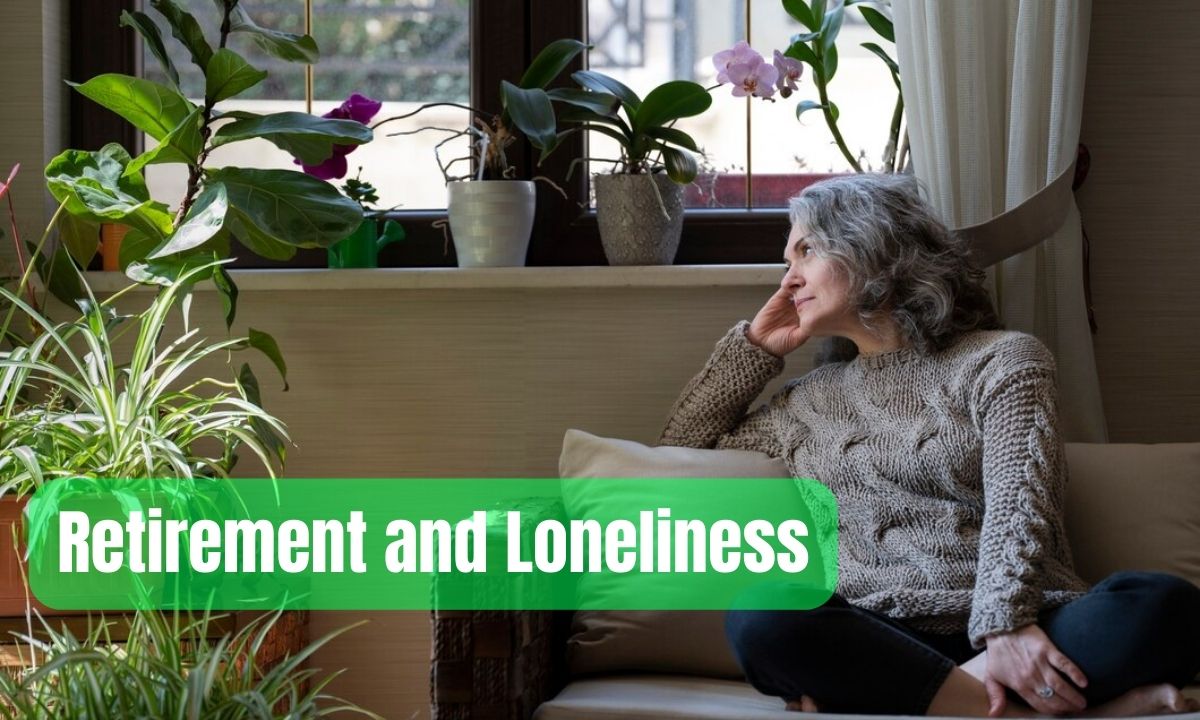Table of Contents
ToggleIntroduction:
Retirement and Loneliness: Embracing Change and Overcoming Isolation is an important aspect of life that have to experience after our job or professional life. This is a time when we enjoy freedom, but sometimes this contract also comes with a feeling of loneliness. This experience of retirement and loneliness is often caused by limited social relationships, lack of a balanced lifestyle, and social society. This article will discuss various techniques and solutions to cope with retirement and loneliness.
Welcoming seniors:
Seniors are a time when we enter the next phase of our lives. It is a time when we enjoy freedom, but it also makes us feel lonely most of the time. After a job or professional life, people may struggle with feelings of loneliness.
Experience of loneliness:
Loneliness is a problem that often comes with aging. It is a feeling in which the person feels that they have no companion and their support is decreasing. Feelings of loneliness can affect mental health and may encourage a person to develop more social relationships.
Ways to overcome loneliness:
- Being active in the community: As you age, being active in the community can be a good way to combat loneliness. People should participate in social activities and spend time with the community.
- Technological communication: People can stay connected with their acquaintances by using modern technological means, such as video calls and social media.
- Volunteering: Participating in volunteer work can be a good way for people to stay active in society and feel empowered.
- Physical activities: Participating in regular physical activities and eating a healthy diet can help overcome loneliness.
Loneliness is a problem that every older person experiences sometimes, but these are difficult times that we can overcome together. Aging can be the beginning of a new journey, and we have to accept it, accept it, and take steps to increase our ability to strengthen our social relationships.
Tips for Retirement and Loneliness for Seniors

Burden of loneliness:
Loneliness is a significant issue for adults that can affect their daily routines. Individuals experiencing loneliness experience feelings of isolation and despair, which can affect their mental and physical health. The burden of loneliness is greater in old age, as their companions, friends, and family are always fewer in number. This loneliness can make adults more vulnerable to stress, depression, and mental problems.
Loneliness is even heavier as you age because it can affect your health. The stress and anxiety associated with loneliness can destabilize health, leading to physical and mental problems. Additionally, during loneliness, a person may fail to find survival in their diet and routine, which may affect their health and spirit.
Organizations, communities, and families must work together to reduce the burden of loneliness. Strengthening networks and relationships for social interaction, companionship, and support can help reduce the burden of loneliness in old age.
5 wise strategies to alleviate loneliness

1. Community engagement programs:
Encourage seniors to participate in community engagement programs, such as nursing homes, social clubs, or volunteer opportunities. These events provide opportunities for social interaction, to meet with new friends and to provide a sense of camaraderie.
2. If they lack nearby family or friends, they should turn to technology for support:
If one does not have family or friends close to them, one must resort to technology. Nowadays technology has brought drastic changes in the field of communication and has provided many facilities to the people for telecommunication. With the use of technology, people can easily stay in touch through video calls, social media, and email. It saves them from the feeling of loneliness and helplessness and provides support and companionship.
Using technological measures, they can spend time on social networking platforms, join online communities, and connect with peers or organizations on their own. This boosts their morale and helps in keeping them more active in the society.
3. Technology and virtual connections:
Introduce seniors to technology, such as smartphones, tablets, or computers, so they can make virtual connections with family members, friends, and support groups. Video calls, social media platforms, and online forums can bridge the virtual distance and alleviate feelings of loneliness.
4. Intergenerational Activities:
Promote tribal activities for elders to engage with younger generations, such as mentoring programs, tutoring children at the library or school, or working together on community service projects. Interacting with young people brings new energy, companionship, and enthusiasm, which gives a new dimension to the lives of older people.
5. Retired seniors must maintain social activity and engagement:
Pensioners should remain socially active and engaged as it helps in maintaining their mental, physical, and spiritual health. Being socially active gives them new energy, a sense of self, and a zest for life. Here are some ways pensioners can help older people stay socially active:
- Participating in community events: Senior pensioners may be encouraged to participate in local community events, such as joining activities at the senior center, attending community functions, or getting involved with a social organization.
- Engaging in Old Age Homes and Old Age Homes: Old age homes and old age home facilities provide opportunities for the elderly to engage in organized activities and social gatherings.
- Spending time with family and friends: Pensioners should get the opportunity to spend time with their family and friends. This boosts their morale and makes them feel happy and active.
Keeping elderly pensioners socially active and engaged makes their lives colorful and happy, and helps them play an important role in society.
When to reach out for help to Seniors being retirement and Loneliness

When is the time for adults to seek help is an important question that can help ensure their safety and security of pay. In some common situations, adults need help, which may include the following:
- Developing health signs: If adults are experiencing any new problems with their health, such as pain, malaise, or balance problems, they should contact a doctor immediately for support and treatment.
- Social and social problems: If adults are facing basic security, financial problems, or social insecurity, they should seek help from family or social service organizations.
- Mental health problems: Adults may have signs of depression, low mood, or other mental health problems. If an adult is facing such problems, they should seek advice from a mental health expert.
In all these situations, help and support can help them find a solution to the problem and make their life better.
Conclusion:
In this article, we look at how retirement and loneliness emerge as challenges faced during old age and how they can be dealt with. Here we have considered several ways of assimilation into society which can help us in coming out of this poignant experience of loneliness.
On the social side, we should be able to strengthen relationships with our family, friends, and community. Furthermore, we should be especially interested in our favorite activities and try to get involved in new and exciting events in life. Along with this, it is also important to promote social services and engagement with the community.
Furthermore, we should take care of our health, because a healthy physical and mental state can help us in case of loneliness and sadness. If the experience of loneliness results in passivity and sadness, it should be followed up with a mental health professional.
These challenges that come up in society can make us stronger only when we are ready to face them with an open mind and look at our lives from a new and mythological perspective. We must recognize and cherish our strengths in overcoming loneliness and isolation so that we can live fulfilling, prosperous, and active lives.
You May Read Also:
FAQs
Taking steps to get involved in social communities after retirement, such as participating in activities, joining clubs or groups, and making new friends, can help reduce loneliness
Joining social groups, incorporating exercise into your daily routine, staying in touch with your friends and family, and getting mental health support can help reduce mental stress.
Joining a local club, group, religious organization or volunteer organization, attending social organizations’ events or sites, and changing your routine can help you adapt to the new time activities.
To reduce loneliness, it is important to make new relationships, join social groups, make time in daily routine, and use self-support tools.
There may be possibilities of spending time in various activities like studies, art, education, yoga, meditation, traveling, sports, acting, singing, gardening, and volunteer work.












